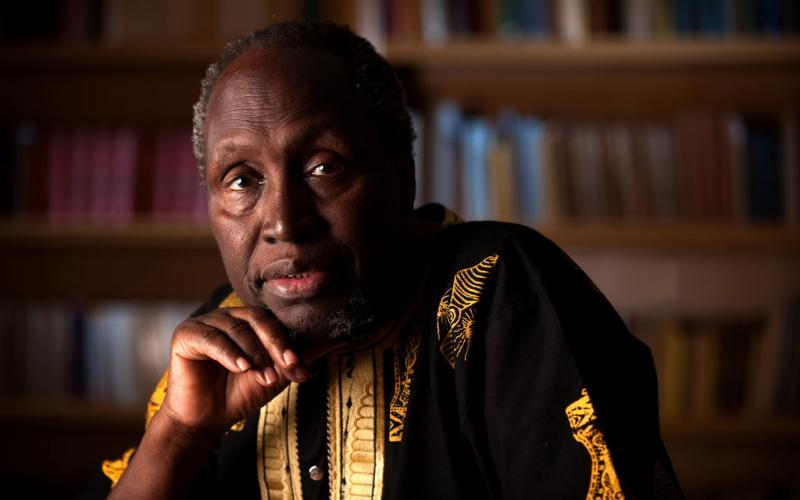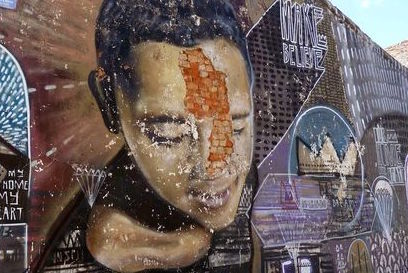An interview with Ngũgĩ wa Thiong’o
Ngũgĩ wa Thiong’o (b. 1938), a Kenyan writer, is one of the most prominent African anti-colonial authors. He lived during the British colonial rule in Kenya, and was very young when he experienced the destruction of the village in which he was born, destroyed by the British colonizers. The post-independent Kenya, however, was not a safe place for him as well. He was put in jail and faced violence for his criticisms toward the national bourgeoisie that came to power after independence in 1963. Contrary to his Nigerian counterpart, Chinua Achebe (1930-2013), Ngũgĩ stopped writing his fiction in English in a critical decision in the 1970s, arguing that the English language is a colonial one to African authors. He engaged in writing in Gikuyu, spoken primarily by the Kikuyu people. In 1977, he was detained for a while in Kenya for one of his plays, I Will Marry When I Want (1977). While in Prison, Ngũgĩ wrote the first modern novel in Gikuyu, Devil on the Cross, on prison-issued toilet paper.
In my written interview with Ngũgĩ, I asked him to reflect on the authentic way of an anti-colonial struggle. I asked him to share his thoughts on the duality of “home and the world” in the face of his experience of colonialism and anti-colonial struggle. Some post-colonial thinkers, such as the Indian scholar Partha Chatterjee, intend to foreground home, interior, as the last setting in which the colonial penetration was resisted. Arguing that the public space, the world, was crucially affected by the experience of British colonialism, this argument intends to revive the pre-colonial culture and society by retrieving the culture of the interior spaces of a Hindu home in late 19th century. Anti-colonial thinkers have criticized this post-colonial argument. According to Himani Bannerji, historical materialist sociologist, in her article, “Projects of Hegemony: Towards a Critique of Subaltern Studies’ ‘Resolution of the Women’s Question’” this post-colonial argument is constructing a de-grounded and a-historical narration of the homes of Hindus in late 19th century, and by doing so is assisting Hindu fundamentalism to pursue its cultural nationalism in contemporary Indian politics.
Ngũgĩ’s experience of colonialism in Africa is also in line with this latter anti-colonial argument. For Ngũgĩ, in the struggle against capitalist colonialism there is no home left to return to. Instead of advocating for a home in the past, he argues “But it is a home that has yet to be, for which we must all struggle, within our own countries and in the world.” He contends, “My real home, whether in Kenya, or outside Kenya, is the place and space of struggle.” Similar to Frantz Fanon, for Ngũgĩ the struggle against colonialism is linked to the struggle against capitalism; thus it is a struggle against bourgeoisie, both national and international.




